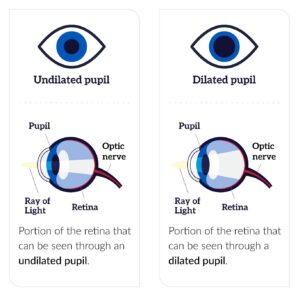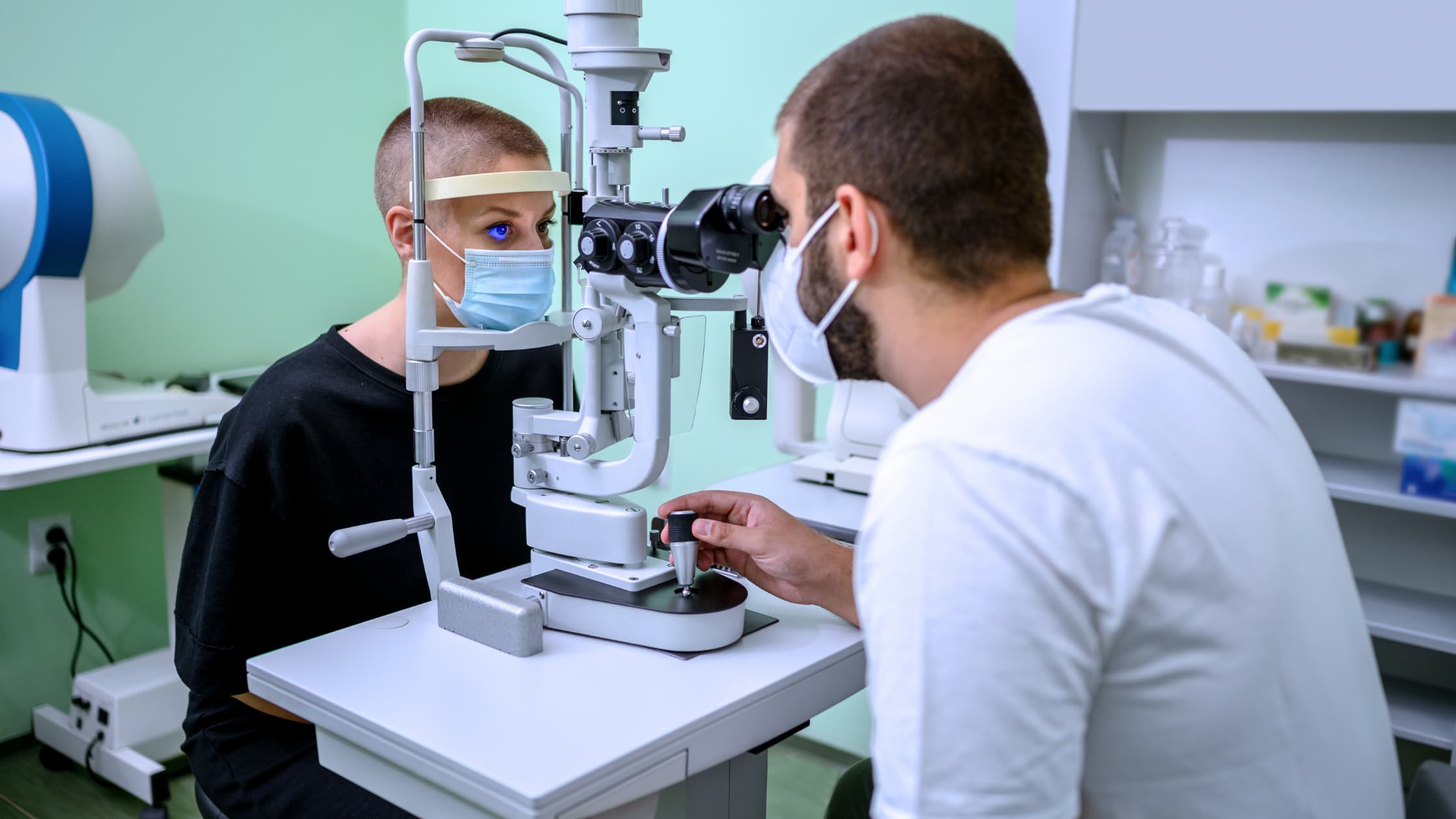A dilated eye exam is the best thing you can do for your eye health! Since many eye diseases have no symptoms or warning signs, you could have a problem and not know it. Even if you think your eyes are healthy, getting a dilated eye exam is the only way to know for sure.
What Is Dilation?
Dilation is part of a thorough eye exam where your doctor uses special eye drops to keep your pupil open. This allows the optometrist to see clearly the back of your eye, including the retina, the macula, and the optic nerve. Eye dilation allows for a more comprehensive examination of your eyes. When you are exposed to bright light your pupils constrict in order to prevent too much light from entering and causing damage to the very back of your eye, the retina. When you enter a dark room, your pupils enlarge to allow more light to enter your eye which gives you better vision in dim lighting.
What happens when you get your eyes dilated?

Photo courtesy: NIH (national eye institute).
Reasons, why you need your eyes, dilated
A dilated eye exam is the best thing you can do for your eye health! Since many eye diseases have no symptoms or warning signs, you could have a problem and not know it. Even if you think your eyes are healthy, getting a dilated eye exam is the only way to know for sure.
It’s the only way to check for eye diseases early on when they’re easier to treat — and before they cause vision loss.
The benefits of eye dilation don’t stop with the eye. During this comprehensive eye examination, your doctor may be able to detect several types of potentially dangerous health conditions, such as:
In many cases, eye doctors can detect these medical conditions even before your own physician can. This means you can obtain early treatment to help fight the disease and prevent it from intensifying. Early detection can not only help prevent future vision loss, but it can literally save your life.
What happens to your eyes after dilation?
Dilation is harmless in the long term. However, it does come with short-term side effects that usually last for about four to six hours. These include:
- light sensitivity
- blurry vision
- trouble focusing on close objects
- stinging right after the drops are put in
If your eye doctor finds refractive errors in your vision, you may get a prescription for eyeglasses or contact lenses to help you see more clearly.
If you’re still wondering why you should go for eye dilation, keep the above facts in mind when you make your next appointment. who doesn’t want to live the healthiest, most fulfilling life possible right?
- https://www.nei.nih.gov/learn-about-eye-health/healthy-vision/get-dilated-eye-exam
- http://www.precisionfamilyeyecare.com/eye-dilation/



[…] be at risk of retinopathy-related vision loss. Therefore, if you have diabetes, you should have a dilated eye exam at least once every year to check for diabetic […]